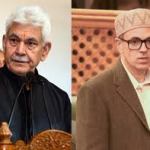The ruling alliance in Jammu and Kashmir, led by Chief Minister Omar Abdullah, convened an emergency meeting that saw nearly 50 MLAs, the full cabinet, and coalition partners come together to pass two significant resolutions. The first condemned the Waqf Amendment Bill, branding it a targeted assault on Muslims and other minorities. The second took aim at a recent transfer order issued by Lieutenant Governor (LG) Manoj Sinha, dismissing it as arbitrary and a breach of administrative norms. National Conference (NC) MLA Tanvir Sadiq, addressing the media, underscored the alliance’s unity and its demand that the Government of India respect the people’s mandate, while subtly warning that their cordiality with the LG should not be misconstrued as weakness.
The optics of this gathering are striking: a near-full assembly of the ruling coalition, not to deliberate on pressing developmental issues or policy innovations, but to issue what amounts to a public rebuke of the LG’s actions. The question looms large—why such a grand mobilization over bureaucratic transfers? Is this a calculated flex of political muscle aimed at New Delhi, a warning shot signaling deeper discontent, or a tacit admission that the elected government’s authority is so curtailed that it feels more like a municipal committee than a state administration?
The transfer of 48 Jammu and Kashmir Administrative Service (JKAS) officers by the LG during Eid holidays has clearly struck a nerve. Coming at a time when the elected government awaits approval of business rules from the Centre—rules meant to delineate the powers of the Chief Minister vis-à-vis the LG—this move is perceived as an overreach, a reminder of the tight leash Delhi keeps on Srinagar. For a government elected with a mandate to restore statehood and reclaim autonomy, this is not just an administrative slight; it’s a challenge to its legitimacy. The alliance’s response—uniting almost its entire legislative strength—suggests a deliberate attempt to project resilience and push back against what it sees as interference.
Yet, this dramatic show of unity raises more questions than it answers. If the LG’s transfer order is the spark, why does it warrant such a disproportionate reaction unless the coalition feels its hands are tied on larger issues? The inclusion of the Waqf Amendment Bill in the resolutions hints at a broader strategy—tying local governance grievances to a national controversy, perhaps to rally public sentiment and amplify their voice beyond the Valley. But the risk is evident: by focusing so heavily on condemning the LG rather than showcasing governance achievements, the alliance may inadvertently expose its own limitations. A government that must assemble en masse to protest transfers risks appearing more reactive than proactive, more symbolic than substantive.
Is this a warning to Delhi—a signal that the alliance might escalate its demands, perhaps even to the point of resigning en masse if statehood and authority remain elusive? Or does it reveal a sobering realization within the coalition that, under the current Union Territory framework, its powers are so diminished that it can do little more than issue strongly worded resolutions? The cordial-yet-firm tone struck by Sadiq suggests a tightrope walk: maintaining a working relationship with the LG while asserting that the mandate of the people cannot be ignored.
The political dividends of this move are uncertain. On one hand, it could galvanize the alliance’s base, portraying them as defenders of democratic will against an overbearing Centre. On the other, it might backfire, exposing their governance as toothless to a public that expects tangible results—jobs, infrastructure, security—over political theater. Time will tell whether this bold stance strengthens their position or lays bare their vulnerabilities. For now, the alliance’s unity is a double-edged sword: a testament to their resolve, but also a potential admission that, in the shadow of Delhi’s dominance, they are fighting to be heard rather than to govern. The common people of Jammu and Kashmir, watching this unfold, may soon decide if this is leadership—or merely noise.




